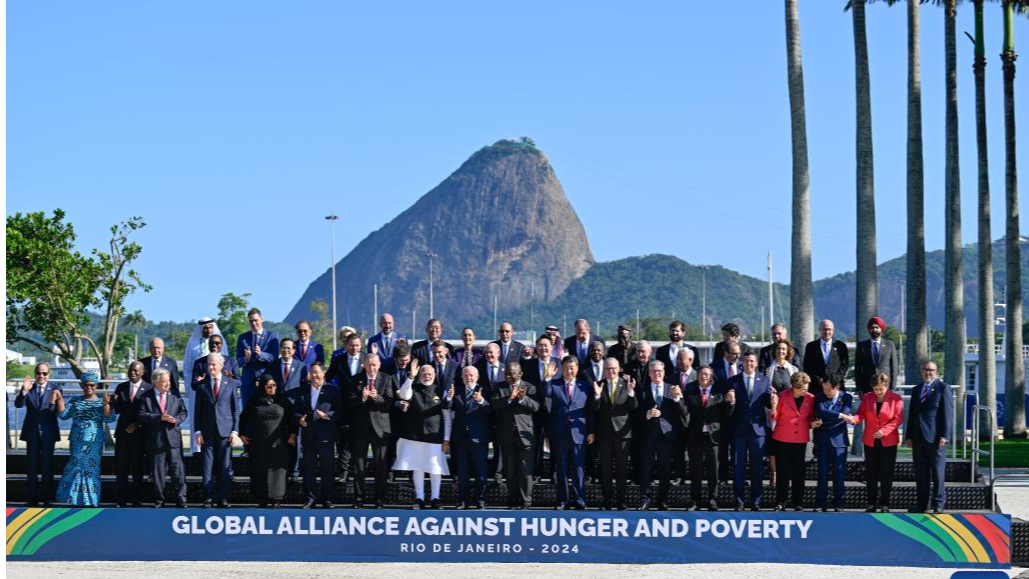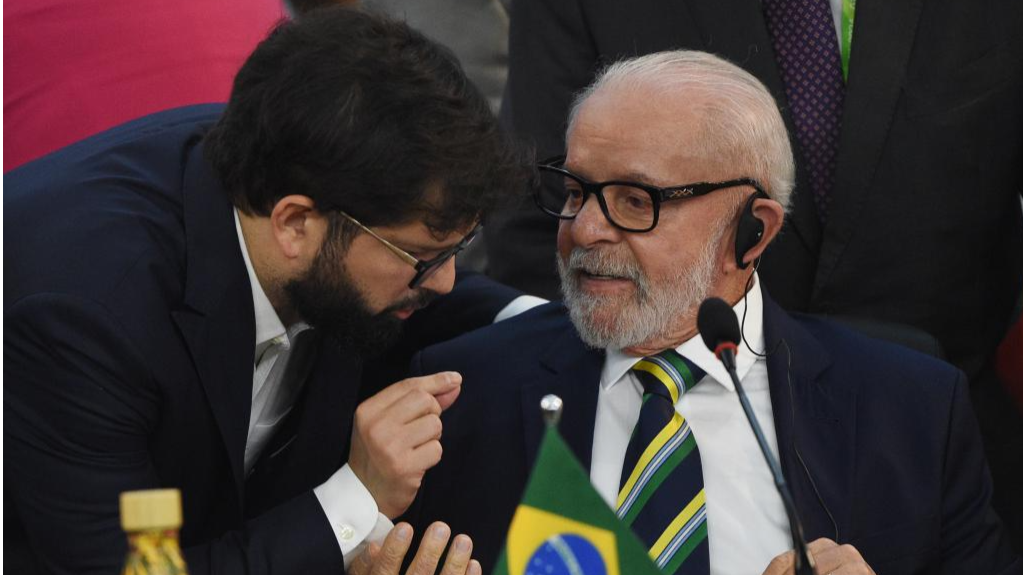
RIO DE JANEIRO - G20 leaders reaffirmed their strong commitment to multilateralism and pledged to reform the global governance system, according to the G20 Rio de Janeiro Leaders' Declaration released on Tuesday.
The leaders pledged to work for a reinvigorated and strengthened multilateral system, rooted in the purposes and principles of the UN Charter and international law, with renewed institutions and a reformed governance that is more representative and effective.
They also pledged to reform the UN Security Council through a transformative reform that aligns it with the realities and demands of the 21st century and makes it more representative, inclusive and effective.
They underscored the need for enhancing the representation and voice of developing countries in decision-making in multilateral development banks and other international economic and financial institutions.
ALSO READ: G20 should help address common global challenges
The leaders also voiced readiness to continue to stand by all the commitments made in the Common Framework for Debt Treatments beyond the Debt Service Suspension Initiative, including those in the second and final paragraphs.
On reforms in world trade, they emphasized the need to ensure a rules-based, non-discriminatory, fair, open, inclusive, equitable, sustainable and transparent multilateral trading system, with the WTO at its core.
They also voiced support for the necessary reform of the WTO with a view to having a fully and well-functioning dispute settlement system accessible to all members by 2024.
Call for urgent action
G20 leaders called for urgent action to address major geopolitical, socioeconomic, and climate and environmental challenges and crises.
The leaders reaffirmed the role of the G20 which is well suited to address those challenges through much-needed international cooperation and political drive and also their strong commitment to the Sustainable Development Goals.

They observed good prospects of a soft landing of the global economy and pledged to continue to foster strong, sustainable, balanced and inclusive growth, address the cost of living pressures, safeguard fiscal sustainability and mitigate negative spillovers.
Concerning the ongoing conflicts and wars, the leaders reaffirmed that all parties must comply with their obligations under international law, including international humanitarian law and international human rights law, and condemned all attacks against civilians and infrastructure.
ALSO READ: Africa set to leverage advantages from G20
They emphasized the urgent need to expand the flow of humanitarian assistance to Gaza and Lebanon and reinforce the protection of civilians and demand the lifting of all barriers to the provision of humanitarian assistance at scale.
They also reaffirmed their commitment to the vision of the two-state solution where Israel and a Palestinian State live side by side in peace within secure and recognized borders, consistent with international law and relevant UN resolutions.
As for the conflict in Ukraine, the leaders highlighted the human suffering and negative added impacts of the conflict with regard to global food and energy security, supply chains, macro-financial stability, inflation and growth.
They welcomed all relevant and constructive initiatives that support a comprehensive, just, and durable peace, upholding all the purposes and principles of the UN Charter for the promotion of peaceful, friendly, and good neighborly relations among nations.
Global alliance
The G20 also launched the Global Alliance against Hunger and Poverty to support the implementation of country-led, country-owned programs aiming at reducing hunger and poverty worldwide, contributing to revitalizing global partnerships for sustainable development.
The G20 leaders renewed their commitment to work towards sustainably increasing agricultural productivity and reducing food loss and waste, and recognized the interdependence of countries in achieving food security and nutrition, food safety, and sustainability through open trade policies consistent with WTO rules.
They reiterated their commitment to the United Nations Development Agenda and reaffirmed their commitment to help developing countries better integrate into the global industrial, value and supply chains and accelerate their industrialization and modernization process.
The leaders also acknowledged the impact of corruption on sustainable development, reaffirming their shared commitments and dedication to lead by example in the global efforts against corruption and related illicit financial flows.
ALSO READ: G20 action for business promotes sustainability
They reiterated the central coordinating role of the World Health Organization (WHO) in the global health architecture and voiced support for drafting a WHO convention, agreement, or other international instrument on pandemic prevention, preparedness and response, with full respect for sovereignty of individual states.
The leaders emphasized the critical role of quality education and training, including digital education, as an enabler for sustainable and socio-economic growth, recognizing culture's power and intrinsic value in nurturing solidarity, dialogue, collaboration and cooperation.
They called for support of open and inclusive dialogue on the return and restitution of cultural property, including illegally exported property.
The leaders also reaffirmed the importance of open and mutually beneficial international cooperation in research and innovation, according to the declaration.
No to disguised trade curbs
G20 leaders agreed that measures taken to combat climate change, including unilateral ones, should not constitute a means of arbitrary or unjustifiable discrimination or a disguised restriction on international trade.
The leaders called on members to cooperate on promoting a supportive and open international economic system aimed at achieving sustainable economic growth and development in all countries and thus enabling them to better address the problems of climate change.
They underscored the need to scale up public and private climate finance and investment for developing countries and highlighted the need for rapidly and substantially scaling up climate finance from billions to trillions from all sources.
READ MORE: UN climate chief asks G20 leaders for boost as finance talks lag
The leaders voiced support for the implementation of efforts to triple renewable energy capacity globally and double the global average annual rate of energy efficiency improvements globally through existing targets and policies.
They reaffirmed their commitment to the full, and effective implementation of the Kunming-Montreal Global Biodiversity Framework and stressed the importance of sustainably managing forests and combating deforestation.
They also pledged to end plastic pollution and avoid discriminatory green economic policies, consistent with WTO rules and multilateral environmental agreements, while recognizing the importance of embracing sustainable production and consumption patterns.


